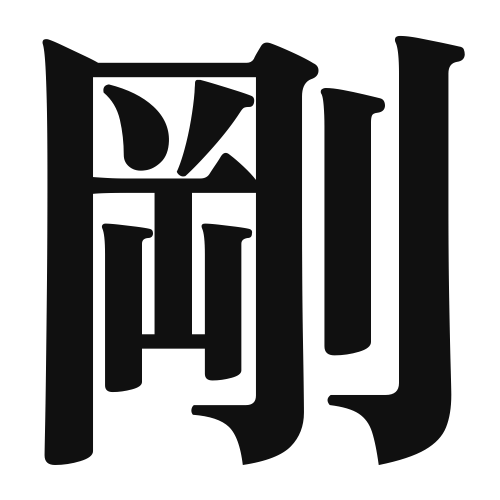1. Overview of Meaning
The kanji “剛” (gō) means “strong,” “hard,” or “sturdy.” It conveys a sense of toughness and resilience, often associated with physical strength or mental fortitude.
2. Formation and Radical
The kanji “剛” is a phonetic-ideographic character (形声文字), which combines a meaning component and a sound component. The left part, “刀” (katana), represents a sword, indicating sharpness or strength, while the right part, “剛” (gō), contributes to the pronunciation.
The radical of “剛” is “刀” (katana), which is related to cutting tools and weapons, reinforcing the idea of strength and sharpness.
3. Examples of Usage
Common words and phrases that include “剛” are:
- 剛性 (gōsei) – rigidity
- 剛力 (gōriki) – physical strength
Example sentences in daily conversation:
- 彼は剛な意志を持っている。 (Kare wa gō na ishi o motte iru.) – He has a strong will.
- この材料は非常に剛です。 (Kono zairyō wa hijō ni gō desu.) – This material is very sturdy.
4. Synonyms and Antonyms
Similar kanji with related meanings include:
- 強 (kyō) – strong, but often refers to strength in a broader sense, including emotional or situational strength.
- 硬 (kō) – hard, which emphasizes physical hardness rather than strength.
Antonyms include:
- 柔 (jū) – soft, indicating the opposite of hardness or strength.
5. Cultural and Historical Background
The kanji “剛” is often associated with Japanese culture, where strength and resilience are highly valued traits. It appears in various proverbs and idiomatic expressions, such as:
- 剛毅 (gōki) – steadfastness, often used to describe a person who is strong in character.
In Japanese history, the concept of strength has been celebrated in literature and martial arts, reflecting the cultural appreciation for both physical and mental fortitude.
